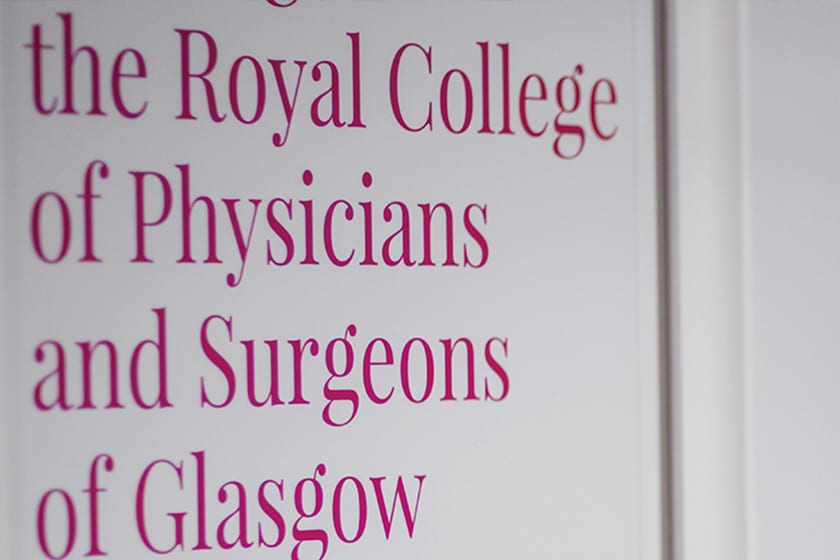Combating the threat of antibiotic resistance
13 Nov 2018
This week (12-18 November 2018) is the World Antibiotic Awareness Week. As part of our College’s work to promote good practice in this area, we’ve commissioned this blog from Jack Fairweather. Jack is the College’s current Scottish Clinical Leadership Fellow, and the Vice-Chair of our Trainees’ Committee.

This week (12-18 November 2018) is the World Antibiotic Awareness Week. As part of our College’s work to promote good practice in this area, we’ve commissioned this blog from Jack Fairweather. Jack is the College’s current Scottish Clinical Leadership Fellow, and the Vice-Chair of our Trainees’ Committee.
Combating the threat of antibiotic resistance
Jack Fairweather, Scottish Clinical Leadership Fellow
I joined the College team in August as a Scottish Clinical Leadership Fellow, appointed by NHS Education Scotland. Alongside a clinical role as a renal trainee in Glasgow, I’m working on antibiotic resistance.
Antibiotics have served as the cornerstone of modern medicine since their discovery ninety years ago. Antimicrobial resistance is a natural phenomenon, but the persistent overuse and misuse of antibiotics has encouraged and intensified the problem. As Professor Galloway highlighted in his President’s blog over two years ago, by 2050 the threat of antibiotic resistance is predicted to have an annual death toll of over 10 million people if we do nothing to address the crisis. This is a problem that we’re facing now, though: the European Centre for Disease Prevention and Control estimate that 33000 people are already dying each year in Europe from an infection with bacteria resistant to antibiotics.
Scotland, and the UK as a whole, are international leaders on this agenda, and work in human health in Scotland is coordinated by the Scottish Antimicrobial Prescribing Group. The group was established a decade ago at the request of the Scottish Government. They work with NHS boards across health and care settings in Scotland to improve antibiotic use, to optimise patient outcomes and to minimise harm to individuals and to wider society.
Concerted and coordinated efforts in antimicrobial stewardship have seen significant improvements, particularly in community antibiotic prescribing. Primary care teams have made enormous gains in addressing unnecessary use of antibiotics.
There is a year on year increase in the use of antibiotics in hospitals, however. IV antibiotic use in secondary care increased by 20% between 2013 and 2017. This observation may be as a result of initiation of prompt antibiotic treatment in patients with suspected sepsis following implementation of ‘Sepsis Six’ and other initiatives to improve the recognition and management of sepsis.
I’ve been linking in with the work of the SAPG in this area, particularly focusing on specific ongoing improvement work such as the Hospital Antibiotic Review Programme, developing tools to improve the process for clinicians reviewing antibiotic prescriptions; as well as Penicillin allergy de-labelling; and investigating the use of antibiotics towards the end of life.
This week is World Antibiotic Awareness Week. To slow resistance, we need to cut the unnecessary use of antibiotics. To save these vital medicines from becoming obsolete, we can all become Antibiotic Guardians.
To find out more, and to make a pledge – visit antibioticguardian.com.
Category: Wellbeing
Latest news and statements
Key priority areas
Topics
- Workforce
- Wellbeing
- Equality, Diversity and Inclusion
- Climate Change
- Health Inequalities
- College
- Obesity
- COVID-19
Archive
Key links
Tweets by @rcpsglasgow